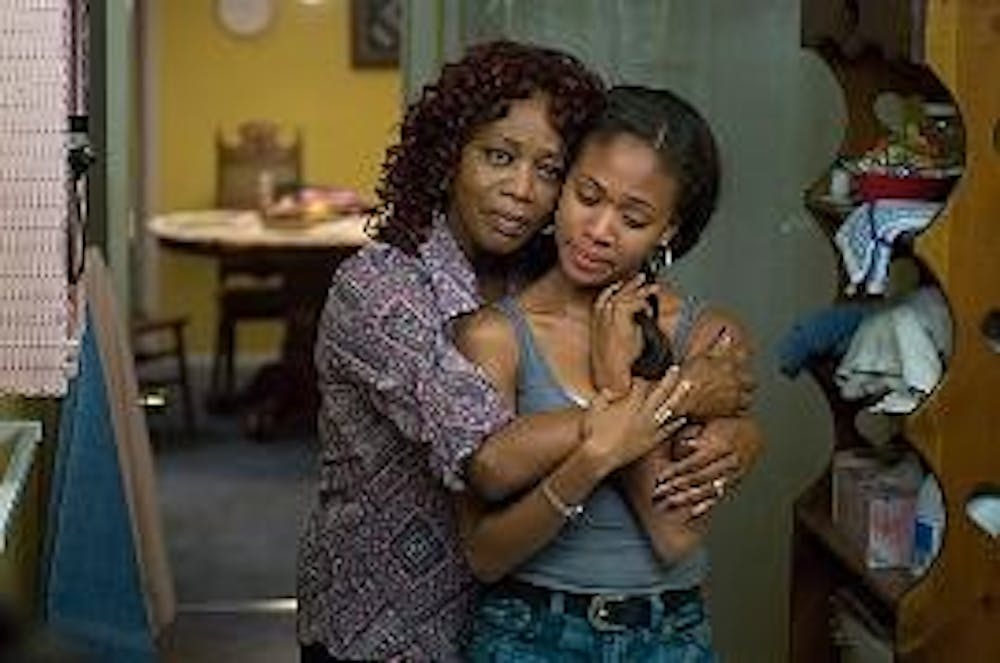American Violet: A-
The United States holds 25 percent of the world's prisoners, despite having about 5 percent of its population, imprisoning five times the world average, according to The Economist.
But as ACLU lawyer Dan Boyd said, "most Americans don't react to statistics ... they react to stories." Boyd spoke with The Eagle in an interview concerning "American Violet," a film about one woman who fought against the injustice of the American justice system. It's not hard to imagine, then, a film as poignant as "American Violet" causing people to see the cracks in our system in a way the media and our politicians would never tell us.
The film is based on the true David-and-Goliath story of Regina Kelly - renamed Dee Roberts in the film and played by Nicole Beharie - a single mother of four in a poor Texas town. She was arrested in 2000 and charged with selling drugs to children. The police didn't find any drugs, and the state's only evidence was the testimony of a mentally unstable drug dealer who later admitted to being coerced. Dan Boyd (renamed Roger Cohen and played by Tim Blake Nelson) and the ACLU ask Roberts to be the plaintiff in a suit against Calvin Beckett (Michael O'Keefe), the viciously racist district attorney.
"American Violet" shows a multitude of problems with the justice system in a short time span, making the viewer feel as much as possible the same crushing weight of the machine that those inside of it must face. Ninety-five percent of the cases in the United States are settled with plea bargains (one of the few statistics the film does state) that amount to coercion regardless of guilt or innocence. These people are given an ultimatum: either plead guilty for a reduced sentence or go to trial against the full power of the state. Those who cannot make bail will have to spend the time awaiting their trial in prison. Once finishing the sentence, regardless of length, the now ex-convict will have a much harder time finding a job, will not be able to live in government subsidized housing or get food stamps and, in many states, cannot vote. While the film places most of the blame on the systems at the local and state levels for rewarding impossibly high conviction rates with more funding, the film's addition of constant TV news clips following the 2000 presidential election reminds the audience that former President George W. Bush was governor of Texas at the time Kelly was faced with her unfair decision.
But just as important as the public policy issues are the effects such incarceration has on the prisoners' families. Torn apart from their mother and traumatized by police raids, Roberts' children feel hurt and confused by the events, especially as they see their mother fight for custody over them with their negligent father (Xzibit), who represents the only bit of moral gray in the film's otherwise black-and-white story.
It would also be remiss to neglect the film's excellent moments of courtroom drama, where Nelson and his local attorney counterpart (Will Patton) are portrayed as the only Texas cowboys with any morals. Watching the upstanding civil rights lawyers outwit the arrogant state lawyers enthralls and entertains. "American Violet's" somewhat predictable script can be easily forgiven thanks to the excellent cast that gives it life. When The Eagle asked her why she did what she did, the real Kelly said it was all for her children. "I was going to lose my freedom anyway," she said in an interview with The Eagle. "But I wasn't just going to give it to them." Beharie's performance emulates that ideal with righteous passion that steals the show. Nelson does similarly well with a subtle yet endearing performance. While O'Keefe apparently only has one facial expression (quietly pissed), he oozes evil all the way through to the spectacular climax.
Infused with raw emotion throughout, "American Violet" tells an important story and tells it well. Exploring the broader issues of America's system of justice through the heartbreaking story of one family, the film is both complex and clear. "Someone needs to be held accountable for ruining people's lives," Kelly said after the screening. "American Violet" does this in a way that will captivate anyone willing to listen.
You can reach this writer at thescene@theeagleonline.com.





